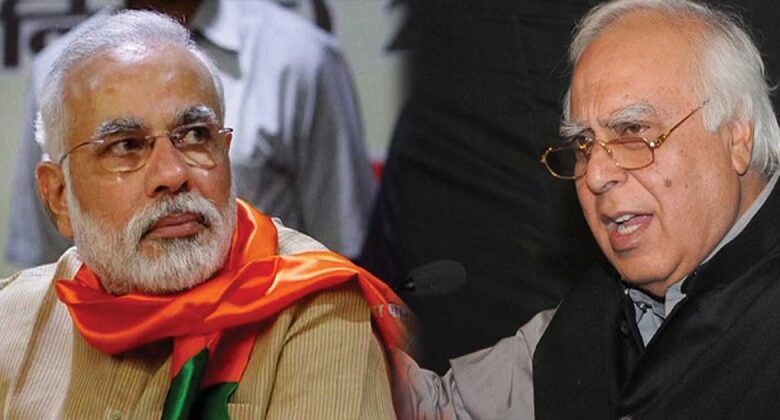Temple of Democracy Disturbed: MP Kapil Sibal Calls Out Prime Minister’s Silence on Manipur

In a recent statement, Rajya Sabha MP Kapil Sibal expressed concerns over the state of the “temple of democracy,” highlighting the negative consequences when the prime minister refrains from making statements or answering questions. Sibal’s remarks came shortly after Vice President Jagdeep Dhankhar pointed out how disruption and disturbance have been weaponized as strategic means to tarnish the sanctity of democratic institutions.
Taking to Twitter, Sibal echoed Vice President Dhankhar’s sentiments, emphasizing that when the prime minister fails to address pressing issues such as the situation in Manipur or respond to questions from the public, the “temple of democracy” becomes “disturbed and disrupted.”
The issue at hand revolves around the demand for the prime minister to make a statement on the situation in Manipur. While the government has agreed to hold a brief discussion on the matter with the Home Minister addressing it, the opposition stands firm on its insistence for the prime minister to provide a statement before proceeding.This disagreement has sparked debates about the role of the prime minister in addressing critical matters that affect the nation. As the leader of the country, the prime minister carries the responsibility to address concerns and provide clarity on significant issues. When such responsibilities are not fulfilled, it leads to a sense of unease among the public and erodes the trust in democratic institutions.
In a democracy, the “temple of democracy” symbolizes the sanctity and functioning of the government, where all voices should be heard and all questions addressed. When this temple is marred by a lack of transparency and communication from its highest authorities, it raises doubts about the government’s commitment to accountability and public welfare.The Manipur issue, in particular, requires urgent attention and resolution. The demand for the prime minister’s statement stems from the significance of his words in shaping the course of action on pressing matters like inter-ethnic conflicts. The refusal to make a statement can be perceived as a failure to acknowledge the gravity of the situation and undermines the essence of democratic governance.
A vital aspect of democracy lies in the smooth functioning of its institutions, with elected representatives playing their part in addressing concerns that impact the lives of citizens. When leaders shy away from accountability, it diminishes the essence of democratic principles and raises questions about the efficacy of the system.
In order to preserve the sanctity of the “temple of democracy,” there is a pressing need for transparency and open communication from the country’s leadership. Citizens have a right to be informed about the government’s actions and decisions, especially when it comes to matters that affect their well-being and safety.The disruption and disturbance observed in the temple of democracy can have far-reaching consequences, eroding public trust and creating divisions within the nation. To restore faith in democratic institutions, it is imperative that leaders respond promptly to concerns and engage in meaningful dialogue with the public.
News Mania Desk /Agnibeena Ghosh






